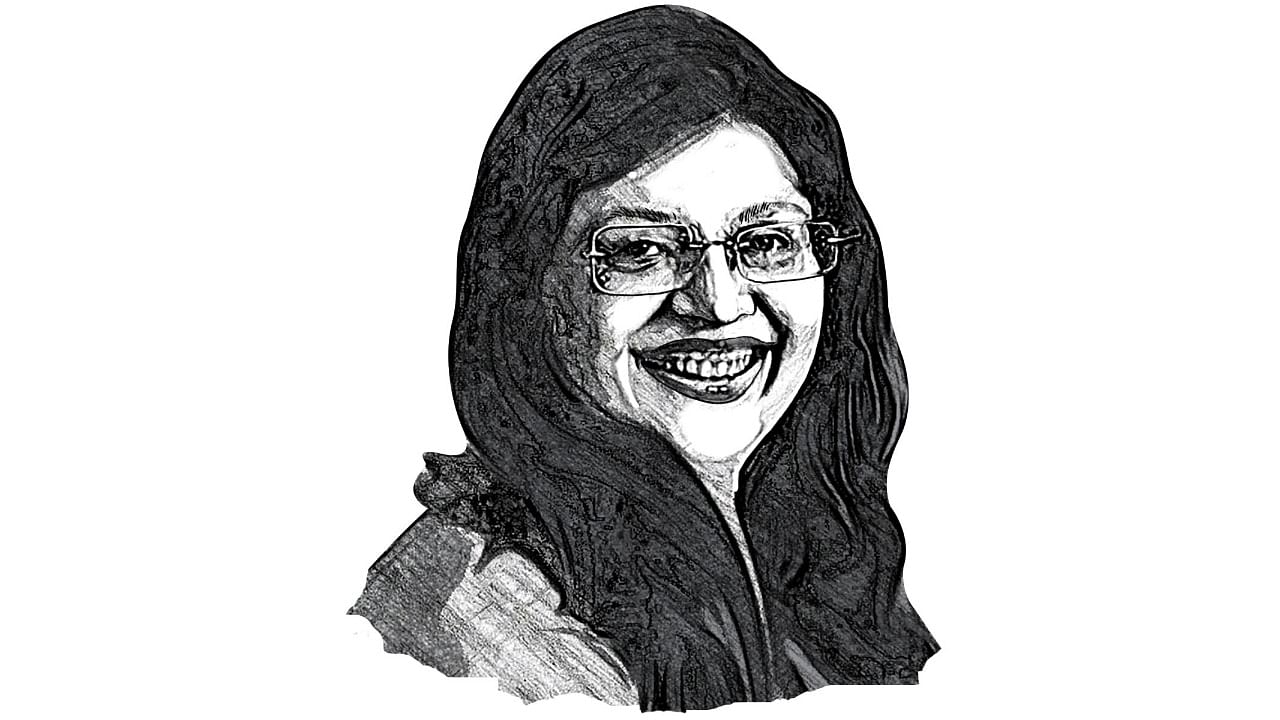
Harini Nagendra the Azim Premji University Prof prides herself on barking up all trees, right and wrong
Credit: DH Illustration
Our cities are engines of growth, crucibles of creativity -- places where people from different backgrounds and worldviews, with different strengths and capacities, can come together to ideate and innovate. But cities are also places of collapsed ecology -- lakes filled with burning foam, tree-less concrete wastelands, where people breathe polluted air and drink polluted water. A city where it seems acceptable to lobby the government to pass laws that allow brutal 14-hour workdays, and where simple pleasures, nay necessities of life -- like spending time with your family and raising your children -- seem to be receding from our grasp.
Can’t we use the creativity, ingenuity and human resources in the city to imagine a different urban pathway to growth -- one that protects ecology while promoting prosperity and wellbeing? Like many other Indian cities, Bengaluru has its bright spots of urban transformation. Apartment federations, resident associations, civil society groups and passionate urban environmentalists have come together to restore lakes, promote gray water reuse and ground water recharge, create urban forests, advocate for safe roads and increased public transport, work with children of migrants to provide education, and so much more. These are small but inspiring nuggets of hope that we must nurture and build on to achieve change at the city level.
We need to go beyond our obsession with monetary wellbeing to value human wellbeing. This requires big-picture thinking, oriented towards ideas of system transformation -- to redirect our focus on current unsustainable models of urban growth and move towards approaches that are just, equitable, climate-resilient. From isolated bright spots, we need a movement for change. This requires building to scale.
Scaling up, as defined in the literature on urban governance, has three components. The first is scaling deep, i.e. building expertise in specific areas like sewage treatment or air pollution control, which are complex areas that require long-term, sustained analysis and action. This also involves long-term engagement towards behavioural change -- for instance, convincing people that treated water is safe to use for drinking, as Singapore has been successful in doing. The second is scaling out, for instance expanding the scope of lake restoration from a single lake to a network of interconnected lakes in a sub-watershed, or going from tree plantation on one road to greening an entire ward.
These are the two most commonly used ways to define scaling.
Yet, there is also a third approach, as important as the first two, but which people often ignore. This is the idea of scaling beyond -- by using the power of social networks to learn, exchange ideas, co-create solutions and transfer technologies. At Azim Premji University’s Sarjapura campus, over the past two weekends, we ran a short course on understanding air and water pollution. Over 25 residents of Bangalore (and a few other cities) gathered to understand the science of water and air pollution and learn about common approaches to deal with these challenges.
Serendipitously, a great deal of cross-fertilisation and exchange of ideas happened when our participants came together for five days, talking and learning from each other. Some were founders of apartment federations, still others were researchers working on environmental behaviour, environmental evangelists, and educators working with children to instill sustainable behaviour. Their collective experience was far more than the sum of their individual knowledge. The networks they formed, and will take forward beyond the scope of this short 5-day workshop, have already begun to look very promising indeed.
In a large city like Bengaluru, there are many local efforts by superhuman actors -- we hear of some of these, but many others remain invisible to our eyes. How much knowledge is contained in these initiatives, which can catalyse other efforts – enabling us to scale beyond – which remains untapped! Our city -- all our cities -- need a library of such initiatives, and a concerted effort to bring them together for cross-learning. Only then can we collectively imagine a new and better world.
